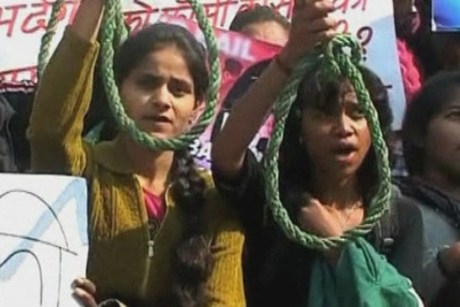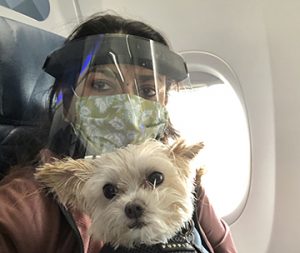When I was home in Kolkata several years ago, I climbed aboard a crowded public bus to go across town. The experience was far from pleasant.
It was hot and crowded. The bus was filled with the stench of body odor. I could feel the sweat of others on my bare arms as I clawed my way to the front door to get out at my stop.
But all of that could be borne in some way or the other. This was the price of getting from south Kolkata to its financial center in Dalhousie Square on a ticket that cost me all of 5 cents.
But there was another memory that came hurtling back in the last few days as I read the news of a 23-year-old woman attacked and raped by a gang of men on a moving bus.
Men on the bus pinched me and groped me and there was nothing I could do. My right arm was up, holding onto the grab bar for dear life as the rickety bus bumped its way over gaping pot holes.
I could not move in that packed bus. I could not hit them back. I was helpless.
But that was just the way it was. Not one person around me thought to do anything about it.
What happened to me happens to women all over India. Every day.
I’ve been stared at on the streets. Or heard catcalls and whistles.
In every instance, I was violated. But I was lucky.
Many times, the attacks are violent. In the December 16 rape of the Delhi woman, the circumstances were unimaginable. Her assailants gang-raped her and dumped her battered body off an expressway. Her injuries were so horrific that part of her intestines had to be removed in hospital.
The shocking nature of this crime galvanized Indians to take to the streets to express their outrage.
But I believe that anger was a long-time coming. It stemmed from years and years of hearing about rapes and other forms of violence against women in which victims are blamed and perpetrators face little or no punishment.
I believe that Indians were finally finding a mass, united voice by which to say: We have to change the way we think about women and the way we treat them.
Kavita Krishnan, the secretary of the All India Progressive Women’s Association, got it right in a speech that was posted online:
There is barely a woman here who has not at some point fought for her dignity on the streets of Delhi, or in its buses. There is not one amongst us that has not found herself alone in such a situation. When we do this, we are told that we are inviting trouble; that we are asking for it.
The Indian government has promised stricter safety measures on buses. It can also, perhaps, make policy changes that will make reporting and convictions in cases of violence against women easier.
But ultimately, there has to be changes in the Indian mindset that affords women the dignity they deserve.
Here’s what journalist Shoma Chaudhury wrote on Teleheka.com:
Rape is already the most under-reported crime in India. But beneath that courses a whole other universe of violence that is not even acknowledged. It’s not just psychopathic men in a rogue white bus who can be rapists: it’s fathers, husbands, brothers, uncles, friends. Almost one in every two women would have a story — perhaps told, perhaps untold — of being groped, molested or raped in the confines of their own homes. If they dare speak of it at all, they are told to bury and bear it. Take it as a part of life. To name an uncle who has been molesting a minor niece would be to shame the family. And marital rape — that stretches the very imagination. It’s a mark of our bestial ideas about women that even judges often suggest that rape survivors marry their rapists to avoid the hell of life as a single woman rejected by society.
It’s clear, say Indian women’s rights activists, that passing laws is not enough.
Legislation might give a sense of change, said Ratna Kapur, a professor at Jindal Global Law School, when in fact, very little is being done. This is what she wrote in The Hindu newspaper:
To confront the hatred that is now manifesting itself in the most egregious ways is to move forward as a society. We need to think about how we can handle women’s equality in ways that are not perceived as threatening. That demands greater responsibility on the part of parents as well as society not to raise sons in a way in which they are indoctrinated with a sense of superiority and privilege. There is also a need on the part of young men to be actively involved in their schools and communities in advocating women’s equality rights.
I am horrified by what happened in New Delhi.
I am heartened that so many people hit the streets in outrage.
I can only hope that from this brutal crime will come the beginning of a safer future for women.



Amen! Let’s hope so..
Thank you for this. It is very thoughtful and important. Women everywhere need NOW to join together, reclaim our voices and strengthen our spirit on order to heal this great wound, this disrespect for the feminine that threatens women, families and all life everywhere. Because life itself comes from the mother, the woman and for life to be sustained, we must respect and honor women!